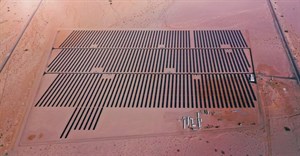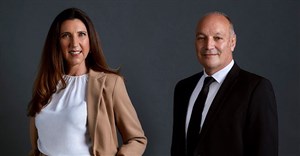Subscribe & Follow
Trending
Jobs
- Marketing Manager Cape Town
- Brand Manager George
- Brands Executive Stellenbosch
- Brand Ambassador Nkomazi
- Brand Promoter White River
- Print Sales Executive Johannesburg
- Xerox Operator Sandton
- Brand Ambassador Bushbuckridge
- Graphic/Digital Designer Johannesburg
- Senior Digital Designer Johannesburg, Cape Town
Forget business as usual, build a brand ecosystem

South Africans are feeling the proverbial pinch from all sides as are the extension of ourselves; brands and businesses. Some are closing their doors and no need to mention any government-owned institutions and some are thriving by changing the game by creating ecosystemic models.
Discovery introduced this manner of business to the South African market at large years ago and now wondering round retailers, I don’t understand why this manner of thinking hasn’t proliferated business and brands when at worst it could mean survival and at best growth at scale. What if chocolate and coffee brands joined forces? What if fashion brands collaborated with car brands?
What if? It’s a way of thinking...
We’ve known it for years so let me state that I’m not about to teach you anything new, I just want to reiterate the type of thinking needed if we marketers are going to truly affect the change we want to see in our brands, nevermind the world.
We’ve known about the power of partnerships for decades. We’ve seen it in the form of affiliates and traditional partnerships but in order to create a truly successful business and brand, you need a self-sustaining ecosystem, both internally and externally. I’m not going to go all textbook here as you can visit your local business school for the academics behind it, let’s rather talk reality and case in point.
UK based brand SilkFred created an ‘ecosystem’ by bringing together brands that won’t be found on the high street and offered them to eager fashion-conscious customers on one platform. It’s the YDE model, pre-sale to Truworths and in a purely online capacity works in the UK economy. It could here too were the right ecosystem created.
It’s niche purpose, as was that of YDE in the early days, is to support up and coming brands by housing them in one solution creating value-driven win-win for all.
Incidentally the brand was co-founded and is directed by the same co-founder of Table Crowd; an innovative platform that’s transformed the traditionally boring and awkward situation of networking into a fantastical connected dinner network where members arrive as strangers and leave as friends, co-creators and mentees; having dined in a facilitated conversation with inspiring entrepreneurs.
Indeed, Kate Jackson, has shown the dynamic and forward-thinking ability shown to be true of ecosystem builders. The same could be said for co-founder Nic Latouf, of South African brand Veldskoen and Hey Creative but that’s another conversation to be featured in my next article.
SikFred understanding that some of the brands they work with wouldn’t have and/or don’t have the necessary space, admin skills or teams to scale, they have a 17,000sq ft warehouse in London that allows their brands to ship and process returns quickly and efficiently.
We are passionate about partnering with independent brands. Like us, they are entrepreneurs and work hard every day to create a unique fashion for you to enjoy. Some of our brands have teams of fifteen people, some have teams of three, some are doing it on their own…But what exactly is an ecosystem?
Understanding that people love the smell of coffee and they typically follow the smell of coffee all the way to a counter, it was a match made in monetary heaven. What better combination than books and coffee because give people time and heighten their experience and their propensity to purchase goes up.
Various literature sites various points on a definition but the general consensus is that an ecosystem;
- Creates value, financial and other, for all stakeholders involved
- Leverages problems and ‘outsources’ them to someone else’s strength within the ecosystem
- Has a clear set of parameters defining roles and responsibilities
It’s the basis of employment in an ideal world and the gig economy in the modern world but ideally, it creates exponential growth in rapid time.
Hung LeHong, vice president and Gartner Fellow during the Gartner Symposium/ITxpo 2017 in Orlando, Florida, said:
The difference between ordering a supplier to do something and influencing an ecosystem partner to take action based on an event such as a pickup request is what makes the ecosystems of today different and so powerful.All you have to do, is find your problem and figure out what you’re good at? No problem!
Give people a reason to visit or approach a store where traffic is high and create a concept store within a store. Seasonal product related sales?
Delivery driver sick every week? Decreased demand for product?... the list of problems, is endless so then all you need to know is...
There are no rules except
In all likelihood what you’ve tried before isn’t going to work. Ralph Welborn, CEO of CapImpact, predictive analytics and advisory firm focused on new growth models states that:
Orchestrating your ecosystem involves figuring out what is your new 20% - not only yours, but those of your partners — and figuring out how to harness, or orchestrate, all of these capabilities to capture new sources of value in new ways.Marketing with well thought out creative is one thing, optimal ad targeting is another but if you want to change the game this year, structure an ecosystem.























